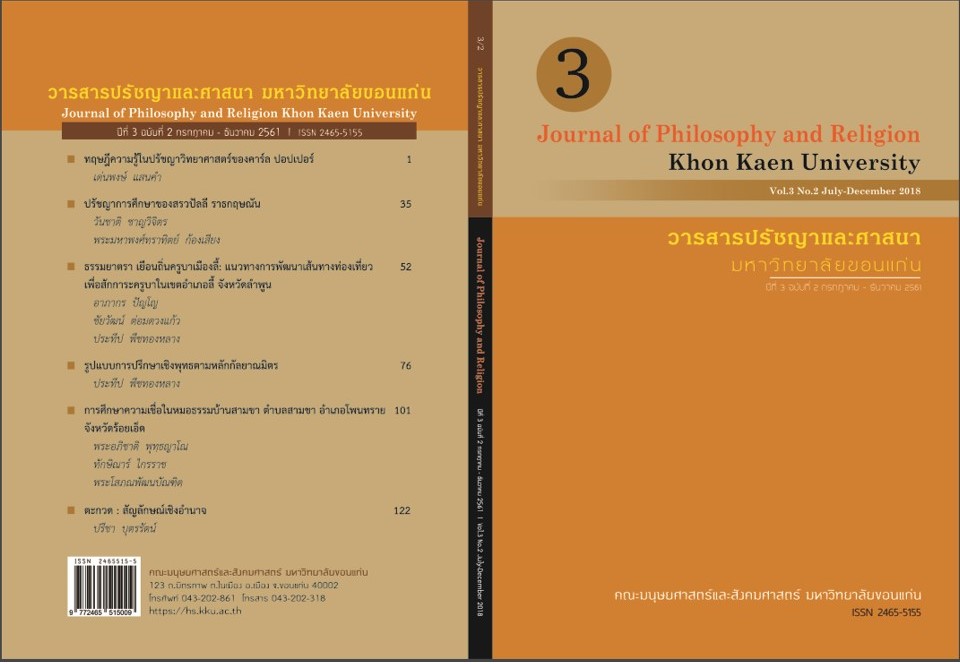The Dhamma Pilgrim to visit Li Khrubas’ Place: The Developmental Approach to Tourism Route for Paying Homage to Khruba, Li District, Lam Phun Province
Main Article Content
Abstract
This research aimed to: 1) study the profiles of Khrubas whose origins are in Li District, Lam Phun Province, 2) study the potentiality of the tourist sites for homage paying to Khrubas in Li District, and 3) to seek for the developmental approach to Tourism Route for Paying Homage to Khuba, Li District. This mixed research composed of the quantitative research and qualitative research. The research fields were the monasteries and the religious places in three districts, namely Wat Baanpang, Wat Phutthabat Huai Tom, and Wat Phra Phutthabat Pha Nam. A sample group consisted of 400 tourists were selected by way of accidental sampling and 20 participants were selected by way of purposive sampling. The research instruments were: the questionnaires, the interviews and the group discussions. Quantitative data were statistically analyzed yielding percentage, mean, standard
deviation. Qualitative data from the interviews and group discussions were analyzed by content analysis and presented via a descriptive report. Results revealed that 1) the Li District is the birth places of three Khrubas, namely, Khruba Chao Srivijaiya, Khruba Chao Apiichai (Khaow Pee) and Khruba Chaiyawongsa. They all have long been highly respected by Lanna people, 2) two monasteries and religious places had a long history associated with all three Khrubas. These places possess of such beautiful architectures,
the holy places located in the beautiful regions. They are also most respect respected by people, 3) the principal development approaches to Tourism Route for Paying Homage to Khuba, Li District were described as follows: (1) the image should be developed throughmodern technology to attract tourists, (2) The activities should be set and fixed with the annual tourist calendar of the province. But all activities should still preserve the formal style and ceremony, and (3) the ways of life should preserve various ethnical ways of life, which concern Buddhism. This should be done through community participatory tourism management.


